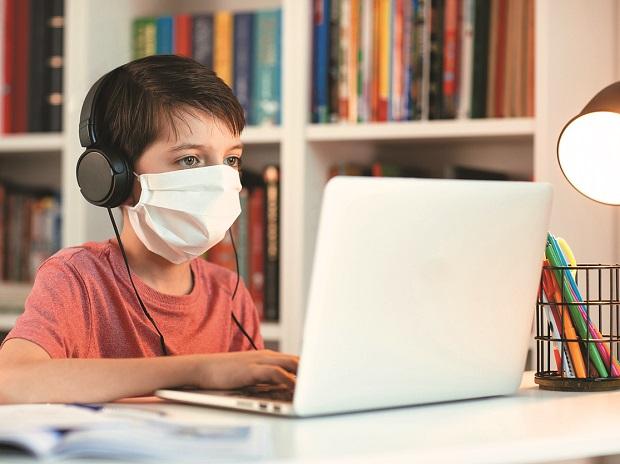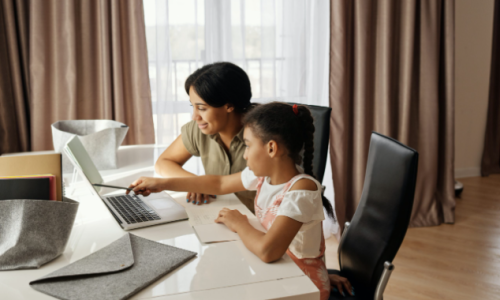The COVID-19 has had a huge impact on all of our lives, and sometimes we overlook the anxiety which it may have caused our children. For many students, returning to school after lockdown and the enforced closures is an exciting prospect, an opportunity to meet up with friends and participate in activities that they enjoy. However, it should be recognized that many children have fears surrounding returning so, we need to address how to help these children prepare emotionally for returning.
As a leading international school in Bangkok, we understand what some students will be going through and working closely with parents; we can help to address any fears and anxieties that they may be experiencing. Of course, children of varying ages will be experiencing different emotions, so we have tried to address the problems by age groups. Naturally, problems faced by younger pupils may also be experienced by older students and vice versa. This article is intended as a general guide, but we recognize that all children’s problems need to be addressed on an individual basis.

Children in Primary School
In younger children, most fears are brought on by uncertainty, so we would always suggest that parents talk to their children as much as possible about school. If they do have concerns, you will need to calmly and practically address these, but try to focus, where possible on the things that they enjoy with their teachers and friends. The objective is to create some enthusiasm and excitement, so don’t say anything, at this stage, that may dampen their mood.
If you do feel that your child is experiencing higher levels of anxiety than usual, we would suggest that you call us to discuss the issue. We could perhaps arrange a video call if your child is fond of their teacher, which may make them feel much happier. If you think that this may cause your child to feel uncomfortable, we will do all we can to help in whatever you see fit.
The Transition From Year 6 to Secondary School
Even in “normal” circumstances, the move to senior school can be a challenging time for children, moving out of their comfort zone and maybe away from some of their friends. The pandemic has done nothing to make the situation any easier we are afraid, and this is something that we fully acknowledge.
Once again, the best way to address the situation is to talk openly about the situation. One common concern is about not having friends in their class, and with smaller class sizes and even some parents and students being forced to return to their home countries, we anticipate this to be a bigger issue this year. All of our teachers and support staff will be available to discuss any concern that you or your child may have and our welfare teams will be actively working with children who they feel may be experiencing anxiety.
Year 11 to Sixth Form
After all of the problems that we have experienced with GCSE exams and results, another significant transition period in a student’s life is made more complicated. Students around the age of 16 and 17 can feel more vulnerable and experience higher levels of anxiety with greater expectations placed upon them and the feeling of having to conform to social expectations. Sadly, some students won’t have achieved the grades that they had hoped for, and this can impact on their confidence.
Where possible, parents should be as supportive although they should perhaps expect a little resistance. Parents are unlikely to be viewed as “cool”, so encouraging your son or daughter to mix with their friends, now social distancing restrictions have been relaxed is always positive. If you do notice that your child is more reclusive or introverted than usual, we would suggest talking with them. Our welfare teams are still on hand should you feel that you need specialist advice.
Detecting if your Child is Suffering From Anxiety
Some students are more open about their feelings and emotions than others and detecting if there is a problem that can be difficult. Younger children will often complain of tummy aches or feeling sick while those who are perhaps more open may burst into tears. These are common signs in children anyway, but with children having been cocooned at home for several months, it may affect more students this time around.
Unfortunately, the best way to address these anxieties is to face the problem full-on if you feel that the issue is nothing too serious. However, if you think it has developed, and your child’s behavior is unusual, then we will be on hand to offer assistance. If your son or daughter appears fine one minute but then retreats into themselves and this is out of character, you may also wish to speak to your doctor who may suggest specialist counseling.
Talking to Young People about their Concerns
Speaking to younger people about their concerns can be challenging with younger pupils often unable to properly express their emotions and older students reluctant to discuss their problems with parents. Try to pick a suitable time to talk to them, for example, if you are relaxing together watching TV or out for a walk. If they are upset or they are distracted by something else, it is probably not the best time as you are likely to experience resistance.
Reassurance is vital, let them know that having worries is normal and that if they are worried it is important to you as a parent, as us as a school. Tell them that you will help them and try to avoid passing judgment, even if it is difficult, and avoid getting angry at this stage. If they have done something wrong, this should be addressed at another time as you must gain their trust.
Conclusion
Remember that worries are normal but keep in mind that COVID-19 is unprecedented and has given us all new challenges. Stress, anxiety and fears can all be treated with the correct support. Help is on hand from the school, your doctor or any other specialist if required.




